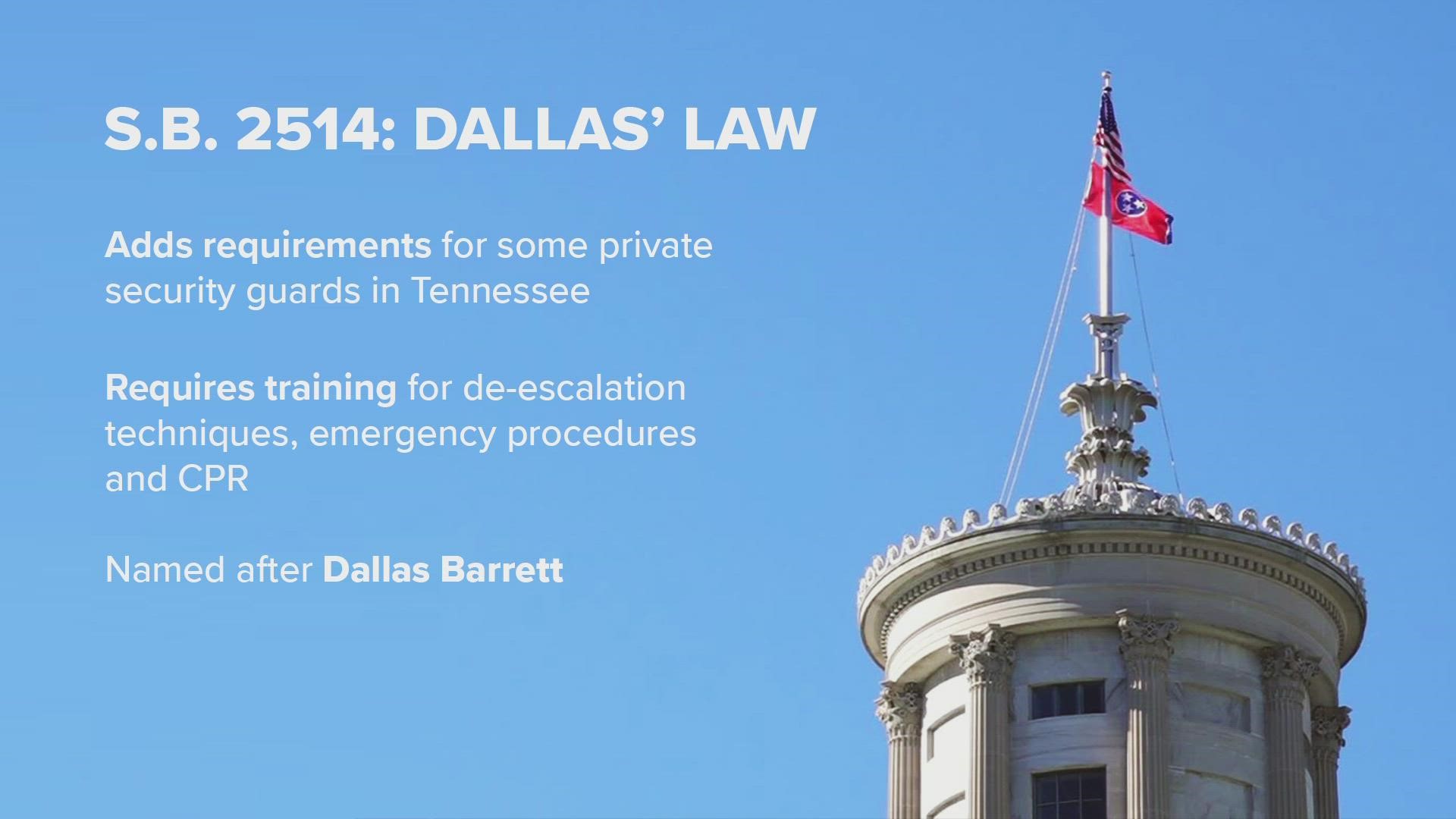NASHVILLE, Tenn. — On January 1, 2023, a slate of laws went into effect in Tennessee. They focus on a variety of areas such as medical billing, the requirements to become a mental health counselor and training on how to identify human trafficking.
A list showing some of the laws that will go into effect is available below. This story will be updated as we learn of additional laws.
SB0384: WINE/LIQUOR DISCOUNTS
Retailers in Tennessee already cannot sell alcohol at less than the cost to the retailer. However, there are some exceptions to this requirement — including case discounts.
The law will remove case discounts, guaranteeing that all alcohol sold at retailers does not drop below the cost to that retailer.
SB2295: MEDICATION AIDE RULES
Allows licensed nursing homes and assisted care living facilities to use a "medication aid" to administer medications under the supervision of licensed, registered or practical nurses.
To be certified as a medication aide, applicants would need to work as a certified nurse aide who has practiced in a nursing home, assisted care living facility, or a Program for All-Inclusive Care for at least one year. People who are licensed as occupational therapy assistants can also apply.
Applicants can also take the NCLEX-RN or NCLEX-PN exam to be a medication aide, without completing a medication aide training program.
SB2398: FOSTER CARE TRANSITION
Currently, the Department of Children's Service in Tennessee can create a program to provide services to youth between 18 years old and 21 years old, as they transition into adulthood from state custody. The law would require DCS support caregivers who support youth during that transition.
It requires the DCS to pay a reimbursement of 50% of the amount eligible caregivers would get for being foster parents. They must be relatives of a child eligible for services who help raise children, the child must not be in state custody, and the caregiver must have been awarded custody by a court.
The household income can not exceed twice the current federal poverty guidelines based on the size of the family. It also requires the caregiver to agree to "seek the establishment and enforcement of child support, including the naming of the father of a child for the purposes of paternity establishment."
SB2514: DALLAS' LAW AND PRIVATE SECURITY
This law adds requirements for some private security guards in Tennessee.
Security guards in places that serve alcohol will need to be trained in de-escalation techniques and CPR. They will also need to get training on emergency procedures and the law will add some limits on their authority.
It is named after 22-year-old Dallas Barrett who was killed by several security guards at a bar in downtown Nashville after they held him down and restrained him until he died of suffocation.
HB1195: MEDICAL BILLING
This law requires health insurance companies, health services providers and healthcare facilities to notify patients whenever the three entities communicate about a patient's medical claim. Also requires a "utilization review agent" to notify providers or healthcare facilities, as well as patients, when additional information is needed for a prior authorization request.
HB1652: SUBSCRIPTION CANCELATIONS
This law requires businesses that allow someone to sign up for a service or subscription online to also allow subscribers to cancel online without additional steps.
Businesses that offer free gifts or trials must also clearly show the price that will be charged when the trial ends. They must also get the subscriber's consent for services to automatically renew.
The law will not apply to most banks, credit unions, or state institutions. It also will not apply to businesses regulated by the Tennessee Public Utilities Commission, the Federal Communications Commission or the Federal Energy Regulatory Commission.
HB2113: REQUIRES HUMAN TRAFFICKING TRAINING FOR TDOC EMPLOYEES
Requires that training in departments such as the Tennessee Department of Corrections, the Department of Mental Health and Substance Abuse Services, and the Department of Human Services include ways to identify, intervene, prevent and help survivors of human trafficking.
Training must be approved by the Tennessee Bureau of Investigation's human trafficking advisory council.
HB2242: BUILDING CODES
This law requires that safety standards for new buildings across the state include sections for multi-level commercial and residential structures that specify how they would mitigate the impact of a structural collapse due to explosive devices.
It also requires the codes to include ways to prevent motor vehicles from driving into new buildings. It replaces a part of the present law that required a study about the use of sprinkler system equipment in some residential buildings.

